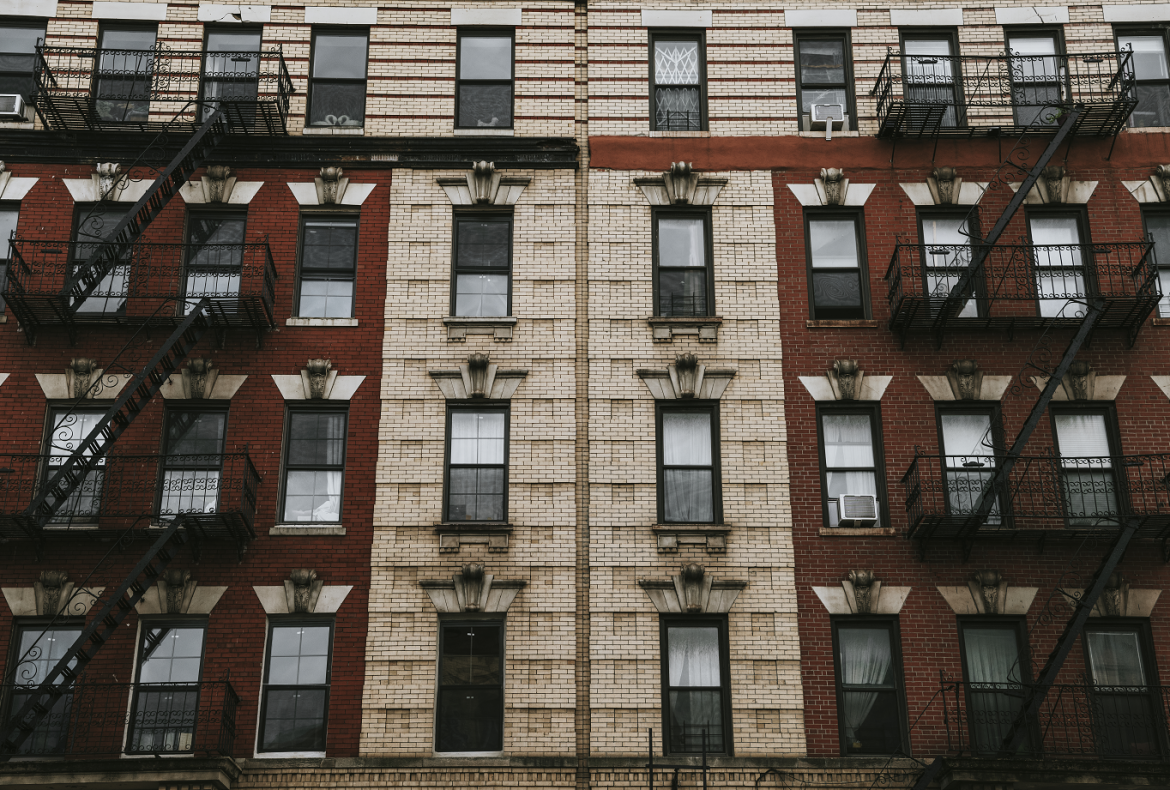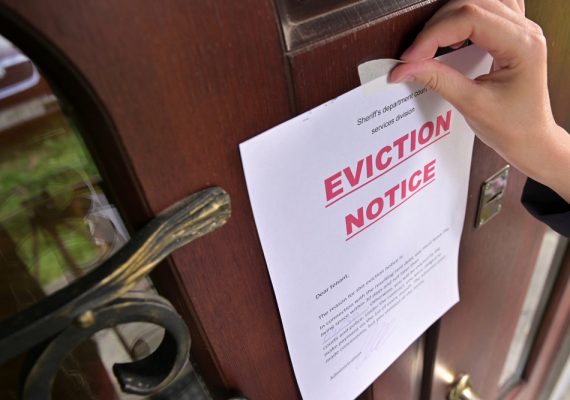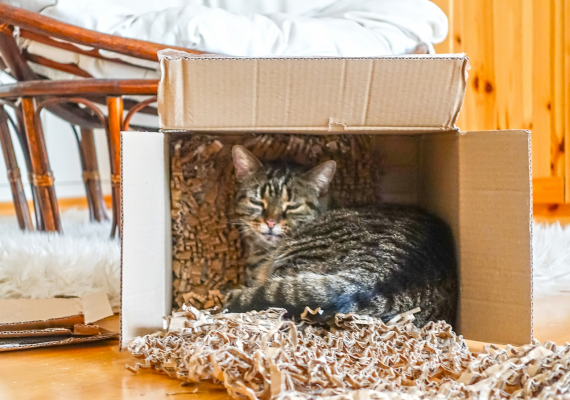The Quick Guide to New York Rent Laws
If you’re planning on moving (and renting!) in and around the New York area, it’s important to have a clear idea of various New York rent laws, including your rights as a tenant in the state.
As a renter, you have more rents than you might think. And while the landlord-tenant relationship can be a tricky one to navigate—especially when you’re new to the area—the more that you can learn before you sign your lease and move in, the better off (and better protected) you’ll be.
As one of the moving companies NYC residents trust most, we have a lot of experience and knowledge in the world of local rent laws. And to help make your move and rental process as easy as possible, we’ve put together this quick guide to the relevant laws you’ll want to keep in mind as a renter in New York.
Laws to Know When Moving to New York
Some of the most important laws for renters to know about are those that dictate what happens before you ever move in—or at least before you sign your lease. Wrapped up in these are cost factors that determine how much you’ll owe in order to secure an apartment, with rental laws that dictate what (and how much) a landlord can require you to pay before handing over the keys.
in—or at least before you sign your lease. Wrapped up in these are cost factors that determine how much you’ll owe in order to secure an apartment, with rental laws that dictate what (and how much) a landlord can require you to pay before handing over the keys.
- Lease application fees – Landlords may not charge more than $20 for a lease application fee, even if the application requires a background check.
- Security deposits – Security deposits are allowed, but they cannot cost more than one month’s rent.
- Blacklisting – Thanks to recent changes in New York rental laws, landlords are no longer able to turn down an applicant based on any previous landlord-tenant disputes they have had or because they are deemed “potentially troublesome.”
It’s important to familiarize yourself with these laws prior to starting the application process so that you don’t end up paying an exorbitant lease application fee or an unlawfully inflated security deposit—and so that you don’t let previously negative landlord experiences stand in the way of your next apartment.
Laws Related to New York Leases
During your tenancy, most of your rights and responsibilities (and the rights and responsibilities of your landlord) are outlined in your lease. Some of the legalities that outline leases in New York include:

- Maintenance – Under the New York Tenant Rights to Withhold or “Repair and Deduct,” you do not have to pay your rent if you have requested a major repair—think broken furnace or leaking roof—and your landlord has not followed through on it. And if you hire a repairman to do the job after no action has been taken, or if you buy parts and make the fix yourself, you can deduct those costs from your rent.
- Unit drop-ins – You are entitled to reasonable notice of 24 hours or more before a landlord can access your apartment, and it must be between reasonable hours. This includes times when landlords are showing your apartment to new potential renters.
- Rent increases – A landlord must give at least 30 days’ notice before raising the rent by 5% or more. And the longer you live there, the longer the length of time—for example, 60 days’ notice after two to three years of tenancy.
- Lease violations – If you accidentally or purposefully violate your lease, you have 30 days to fix the situation, instead of the previous 10.
- Evictions – Unlawful evictions are now a misdemeanor offense, with fines of at least $1,000.
A Note on New York Rent Control
There are about one million rent controlled apartments in NYC alone, meaning apartments where there are restrictions on whether rent can be raised and by how much.
New protections in the recent update to New York’s rental laws allow rent controlled apartments to continue on as they are (rent-stabilization was originally planned to expire in June, 2019), and dictates that the stabilized rent cannot be voided by a unit’s rent level or by a tenant’s income level.
Get Help for Your Move to NY
Now that you have a basic understanding of the laws, it’s time to get packing—and we can help! Bennett Movers is one of New York’s leading full service moving and storage companies, helping tenants both old and new enjoy a seamless transition to their next apartment.
For more information, don’t forget to check out our blog for a ton of extra insider advice, tips, tricks, and hacks for ensuring that your move goes as smoothly as possible. Get a free quote for your upcoming move today!
If you’re planning on moving (and renting!) in and around the New York area, it’s important to have a clear idea of various New York rent laws, including your rights as a tenant in the state.
As a renter, you have more rents than you might think. And while the landlord-tenant relationship can be a tricky one to navigate—especially when you’re new to the area—the more that you can learn before you sign your lease and move in, the better off (and better protected) you’ll be.
As one of the moving companies NYC residents trust most, we have a lot of experience and knowledge in the world of local rent laws. And to help make your move and rental process as easy as possible, we’ve put together this quick guide to the relevant laws you’ll want to keep in mind as a renter in New York.
Laws to Know When Moving to New York
Some of the most important laws for renters to know about are those that dictate what happens before you ever move in—or at least before you sign your lease. Wrapped up in these are cost factors that determine how much you’ll owe in order to secure an apartment, with rental laws that dictate what (and how much) a landlord can require you to pay before handing over the keys.
in—or at least before you sign your lease. Wrapped up in these are cost factors that determine how much you’ll owe in order to secure an apartment, with rental laws that dictate what (and how much) a landlord can require you to pay before handing over the keys.
- Lease application fees – Landlords may not charge more than $20 for a lease application fee, even if the application requires a background check.
- Security deposits – Security deposits are allowed, but they cannot cost more than one month’s rent.
- Blacklisting – Thanks to recent changes in New York rental laws, landlords are no longer able to turn down an applicant based on any previous landlord-tenant disputes they have had or because they are deemed “potentially troublesome.”
It’s important to familiarize yourself with these laws prior to starting the application process so that you don’t end up paying an exorbitant lease application fee or an unlawfully inflated security deposit—and so that you don’t let previously negative landlord experiences stand in the way of your next apartment.
Laws Related to New York Leases
During your tenancy, most of your rights and responsibilities (and the rights and responsibilities of your landlord) are outlined in your lease. Some of the legalities that outline leases in New York include:

- Maintenance – Under the New York Tenant Rights to Withhold or “Repair and Deduct,” you do not have to pay your rent if you have requested a major repair—think broken furnace or leaking roof—and your landlord has not followed through on it. And if you hire a repairman to do the job after no action has been taken, or if you buy parts and make the fix yourself, you can deduct those costs from your rent.
- Unit drop-ins – You are entitled to reasonable notice of 24 hours or more before a landlord can access your apartment, and it must be between reasonable hours. This includes times when landlords are showing your apartment to new potential renters.
- Rent increases – A landlord must give at least 30 days’ notice before raising the rent by 5% or more. And the longer you live there, the longer the length of time—for example, 60 days’ notice after two to three years of tenancy.
- Lease violations – If you accidentally or purposefully violate your lease, you have 30 days to fix the situation, instead of the previous 10.
- Evictions – Unlawful evictions are now a misdemeanor offense, with fines of at least $1,000.
A Note on New York Rent Control
There are about one million rent controlled apartments in NYC alone, meaning apartments where there are restrictions on whether rent can be raised and by how much.
New protections in the recent update to New York’s rental laws allow rent controlled apartments to continue on as they are (rent-stabilization was originally planned to expire in June, 2019), and dictates that the stabilized rent cannot be voided by a unit’s rent level or by a tenant’s income level.
Get Help for Your Move to NY
Now that you have a basic understanding of the laws, it’s time to get packing—and we can help! Bennett Movers is one of New York’s leading full service moving and storage companies, helping tenants both old and new enjoy a seamless transition to their next apartment.
For more information, don’t forget to check out our blog for a ton of extra insider advice, tips, tricks, and hacks for ensuring that your move goes as smoothly as possible. Get a free quote for your upcoming move today!











